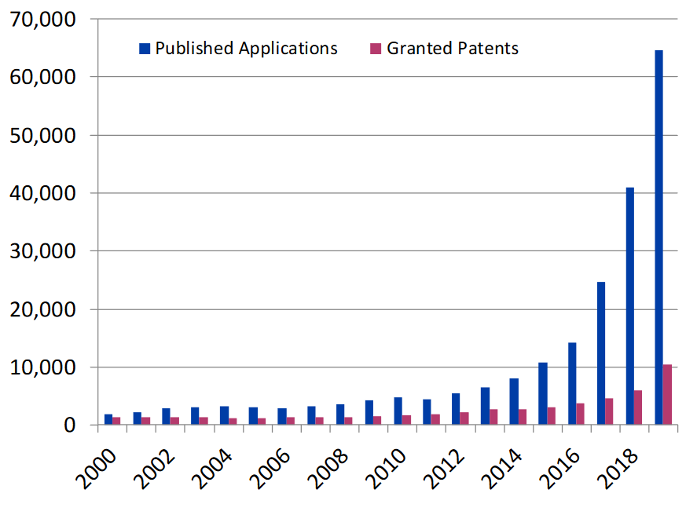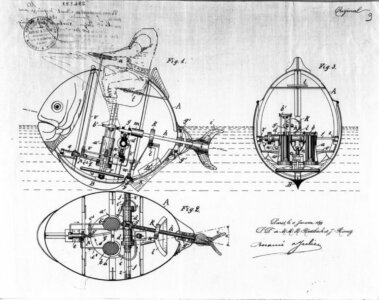Artificial intelligence (AI) programs are of course protectable by patent. It is not surprising that the surge of artificial intelligence in our lives, which we have experienced in recent years, especially with the arrival of ChatGPT and DaLL-E, is the direct result of a revolution which appeared in the area of patents almost 20 years ago.

Indeed, as confirmed by the latest WIPO[1] (World Intellectual Property Organization) study, if the first patent applications on Artificial Intelligence were filed in 1956, it was not until the 2000s, with the advent of modern computing, that the number of patent applications claiming it has become significant. Thus, we went from just over 3,000 patent applications filed until 1991 to nearly 12,500 until 2011. Graph 1 above shows this exponential increase in the number of applications filed. Likewise, the latest statistics known from the EPO (European Patent Office) show that since 2010 the number of patent families in the field of technologies relating to Artificial Intelligence on the sole application of IOT has increased on average by 54 % per year[2]. This growth is almost five times faster than the average for all technological areas combined. According to these same statistics, these requests come first from China, second from the United States, then from Japan and South Korea. France only comes in 10th position, just behind India and Russia.

If this revolution of AI in patents obviously concerns the entire field of patentability, the three technical fields most concerned are telecommunications (15% of patent applications), transport, such as autonomous cars (15 %), and the biological and medical field (12%).
No one will be surprised that large companies, such as IBM, Microsoft, Amazon, are the top patents applicants. A significant number of universities and research institutes are also among the top 500 applicants for patent AI-related applications. It should be noted that in Europe, SMEs have only filed 10% of these AI patent applications while it is 16% in the United States.
We can thus see that large companies, such as IBM and Microsoft, have understood the importance of filing patents to protect their AI programs. This is not reserved for them! It is high time that French companies and, in particular, French start-ups and SMEs, also understand the importance of protecting and promoting their AI software.
It is, for these companies, of major strategic interest to participate in this fourth industrial revolution which is developing from “Artificial Intelligence”.



